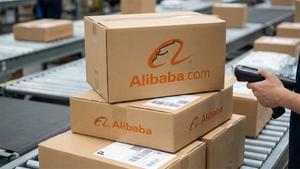TrendForce posits that the wafer foundry market is expected to see a recovery in 2025, with an estimated annual growth of 20%—up from 16% in 2024. This positive outlook comes despite the weak end-market demand for consumer products, which has led component manufacturers to adopt a conservative stocking strategy and made the average capacity utilization rate of wafer foundries fall below 80% in 2024. Only advanced processes, such as 5/4/3nm nodes used for HPC products and flagship smartphones, have managed to maintain full capacity, and this situation is expected to persist into 2025. However, the visibility in the consumer end market remains low for 2025.
In contrast, the automotive and industrial control supply chains are beginning to recover from inventory corrections starting in the second half of 2024, with gradual restocking expected to resume in 2025. Coupled with the increase in wafer consumption per unit driven by edge AI and the continued expansion of cloud AI infrastructure, these factors are projected to drive a 20% annual growth in the wafer foundry market value in 2025.
TrendForce indicates that advanced processes and packaging will propel TSMC’s revenue growth rate beyond the industry average in 2025. Although the growth momentum of non-TSMC foundries is still restrained by consumer end-demand, it is expected that revenue growth in 2025 will reach nearly 12%, outperforming the previous year. This is due to factors such as healthy component inventory among IDM and fabless clients in various sectors, demand for power driven by Cloud/Edge AI, and a lower base in 2024.
Advanced processes and packaging to propel TSMC’s revenue growth beyond industry average in 2025
TrendForce highlights that over the past two years, the 3nm process capacity has entered a scaling-up phase, and by 2025, it is expected to become mainstream for flagship PC CPUs and mobile APs, as mid-range and high-end smartphone chips, AI GPUs, and ASICs remain on the 5/4nm nodes, utilization rates for these processes are likely to stay high. Although the demand for 7/6nm processes has been weak for the past two years, new demand is anticipated to emerge between the second half of 2025 and 2026, driven by the transition plans for RF/WiFi processes in smartphones. TrendForce forecasts that in 2025, 7/6nm, 5/4nm, and 3nm processes will contribute 45% of global revenue for wafer foundries.
Furthermore, driven by strong demand for AI chips, the supply of 2.5D advanced packaging was significantly constrained in 2023 and 2024. Major manufacturers offering integrated front-end manufacturing and back-end packaging solutions, such as TSMC, Samsung, and Intel, are actively expanding their capacities. TrendForce predicts that wafer foundries’ revenues from 2.5D packaging solutions will grow by more than 120% in 2025. While its share of total wafer foundry revenue will remain below 5%, its importance continues to rise.
Mature process utilization rates expected to increase by 10 percentage points, but capacity expansion may place pressure on prices
TrendForce states that due to low visibility in consumer product demand, supply chain participants are likely to maintain a conservative approach to inventory building, and wafer foundry orders in 2025 are expected to remain in an ad-hoc mode similar to 2024. However, with inventories of components for automotive, industrial control, and general-purpose servers being gradually corrected to healthy levels in 2024, restocking is anticipated to resume in 2025, leading to a 10 percentage point increase in utilization rates for mature processes and breaking the 70% mark.
Following two consecutive years of delayed capacity expansion plans, wafer foundries are also expected to begin introducing previously postponed new capacities in 2025—especially for 28nm, 40nm, and 55nm modes. The combination of low demand visibility and the influx of new capacity could exert additional downward pressure on prices for mature processes.
Despite the 20% growth forecast for wafer foundry revenues in 2025, supported by ongoing AI developments and the bottoming out of component inventories for applications, foundries will still face several challenges. These include uncertainties over end-market demand due to macroeconomic factors, potential impacts of high costs on AI deployment strength, and increased capital expenditures due to capacity expansion plans.
For further details of this press release, including the accompanying tables and figures, please visit: https://www.trendforce.com/presscenter/news/20240919-12307.html
For additional insights from TrendForce analysts on the latest tech industry news, trends, and forecasts, please visit our blog at https://www.trendforce.com/news/
About TrendForce (www.trendforce.com)
TrendForce is a global provider of the latest development, insight, and analysis of the technology industry. Having served businesses for over two decades, the company has built up a strong membership base of 500,000 subscribers. TrendForce has established a reputation as an organization that offers insightful and accurate analysis of the technology industry through five major research departments: Semiconductor Research, Display Research, Optoelectronics Research, Green Energy Research, and ICT Applications Research. Founded in Taipei, Taiwan, in 2000, TrendForce has extended its presence in China since 2004 with offices in Shenzhen and Beijing.
View source version on businesswire.com: https://www.businesswire.com/news/home/20240919972767/en/
TrendForce predicts a 20% surge in the wafer foundry market by 2025, powered by AI innovations and a supply chain bounce-back! Despite challenges in consumer demand, advanced tech like 3nm/5nm processes will lead the way.
Contacts
Ms. Peng Chen
Tel: +886-2-8978-6488 ext. 667
pengchen@trendforce.com
Ms. Pinchun Chou
Tel: +886-2-8978-6488 ext.669
pinchunchou@trendforce.com



